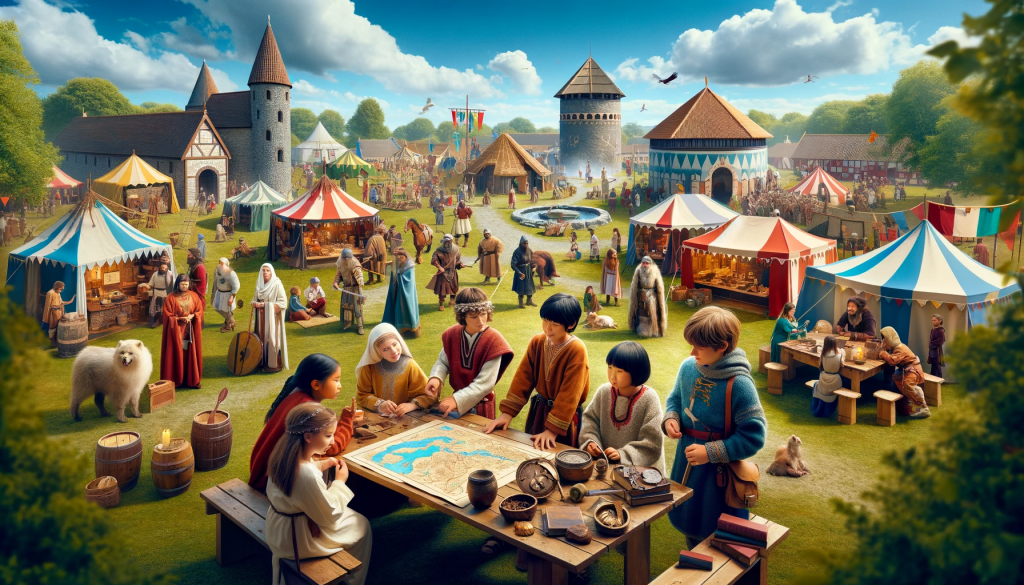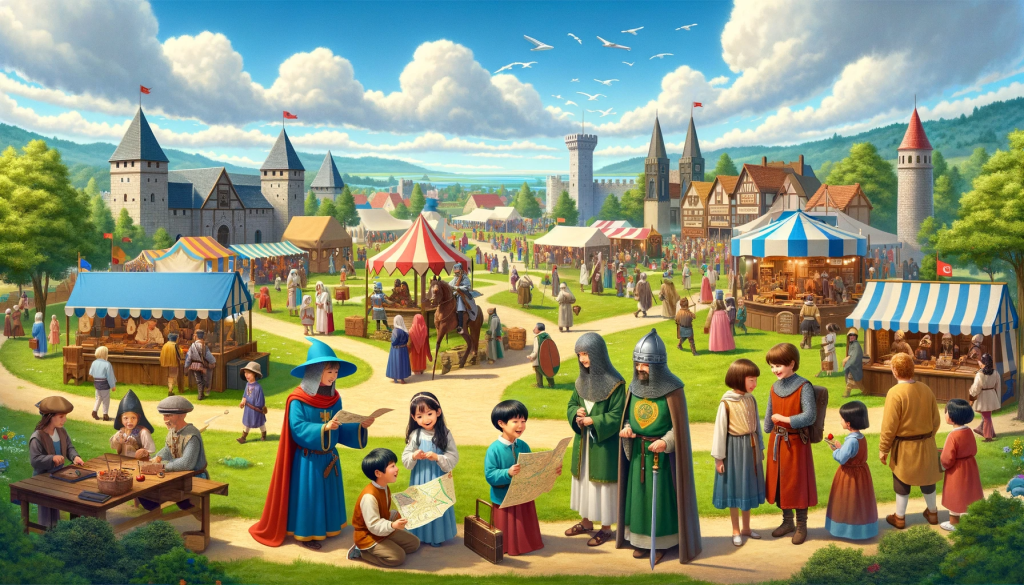Instilling a love for history in children is vital in nurturing well-rounded, informed individuals. With their rich narratives and vivid illustrations, history books can transform how young minds perceive the past. This article explores various strategies to effectively use history books to foster a deep and enduring fascination with history in children.
Why Should Parents and Teachers Instill Kids’ Love of History from an Early Age?
Nurturing a passion for history in children from an early age is crucial to their overall development, shaping them into well-informed, empathetic adults. There are several compelling reasons why learning history early can immensely benefit children’s future.
Fostering a Sense of Identity and Belonging
Learning about their cultural heritage, the history of their country, and the broader world history allows them to understand where they come from. This knowledge instills a sense of pride and belonging, fostering a solid personal identity.
Developing Critical Thinking Skills
History teaches children to analyze, question, and think critically. Children learn to evaluate different perspectives and understand cause and effect by examining historical events and the consequences of various actions. These critical thinking skills are essential in adulthood, aiding decision-making and problem-solving.
Enhancing Cultural Awareness and Empathy
Studying history exposes children to diverse cultures and viewpoints, promoting cultural awareness and empathy. Understanding the struggles and achievements of different groups throughout history encourages tolerance and respect for diversity. This empathy and openness are vital qualities in our increasingly globalized world.

Building Informed Citizens
A well-rounded historical education forms the foundation of informed citizenship. Knowledge of history equips children with the context necessary to understand current events and societal issues. This understanding is crucial for participating effectively in civic life and making informed adult decisions.
Encouraging Lifelong Learning
Early exposure to history often sparks a lifelong love of learning. Children fascinated by history will likely continue seeking knowledge, becoming well-read and educated adults. This habit of continuous learning is invaluable in both personal and professional spheres.
Preparing for Academic and Career Success
A solid grasp of history provides a foundation for academic success across various subjects. Many careers, such as law, politics, journalism, and education, require a deep understanding of historical contexts. Early history education lays the groundwork for these future career paths.
How to Use History Books to Nurture a Child’s Love for History
History is more than learning dates and facts; it’s about shaping kids into critical thinkers, empathetic citizens, and informed participants in their communities. The benefits of learning history early extend far beyond the classroom, influencing every aspect of their future as adults. Let’s see how we can do it as parents and educators!

Choosing the Right History Books
The first step in this journey is selecting the right books. Books that present historical events and figures through educational and entertaining stories. However, including diverse books covering different cultures, epochs, and perspectives is crucial to providing a well-rounded historical understanding.
Interactive Reading and Discussions
Once the right books are in hand, the next step is to make the reading experience interactive. Parents and educators can encourage children to ask questions and express their thoughts about the stories. Discussing the motivations of historical figures or the implications of significant events helps deepen their understanding and engagement with the subject.
Connecting History to the Present
One effective way to instill a love for history is by drawing connections between past and present events. This approach makes history relevant to children, showing how past events shape their world. For instance, relating historical struggles for justice to current events can spark a deeper interest and understanding.
Using Creative Tools and Activities
Incorporating creative tools and activities can also enhance the learning experience. Activities like historical role-play, creating timelines, or visiting museums bring history to life. Additionally, maps and globes while reading can help children visualize where and when events occurred, adding a tangible element to their learning.

Incorporating Multimedia Resources
Supplementing history books with multimedia resources like documentaries, films, interactive websites, or video games can provide a more comprehensive understanding. Visual and interactive elements can make historical events more relatable and memorable for children.
Encouraging Personal Exploration
Encouraging children to explore topics of personal interest within history can lead to a more profound engagement. Whether it’s a fascination with ancient civilizations, world wars, or significant revolutions, supporting their interests with appropriate books and resources can fuel their passion for history.
Do Your Children Love History?
Instilling a love for history in children is a journey that goes beyond just reading books. It involves interactive learning, creative activities, and connecting the past to the present. By carefully selecting diverse and engaging history books and supplementing them with various resources and activities, parents and educators can ignite a lifelong passion for history in young minds.




